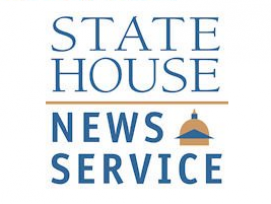Dashboard Highlights Health Care Access Woes

DATE : January 25, 2023
New Data Sheds Light On Trends In Primary Care
JAN. 25, 2023.....More than a third of Massachusetts residents experienced difficulty accessing necessary health care in 2021, a growing share as statewide spending on primary care dropped and the aging provider workforce contracted, according to newly published data.
Shedding new light on a facet of the state's health care system where some policymakers have pushed unsuccessfully for new investment, the Center for Health Information and Analysis on Wednesday published its first-ever dashboard highlighting primary care finance, capacity, access and utilization data points.
The analysis found 33.9 percent of Bay Staters in 2021 reported challenges obtaining "necessary health care" in the past 12 months, an increase of 1.5 points over the rate two years earlier.
Other measurements of access to care showed similar signs of strain.
In 2021, 88.1 percent of Massachusetts residents reported that they had a usual source of care, down from 90.6 percent in 2019. The share of commercial patients between 50 and 75 years old who received a recent screening for colorectal cancer dropped from 80.2 percent in 2018 to 74.6 percent in 2020.
Some of the trends reflect the impact of the COVID-19 pandemic, which prompted many people to delay seeking care or addressing health needs.
CHIA's dashboard, produced alongside Massachusetts Health Quality Partners, also found that fewer medical professionals are offering primary care. In 2018, about 30.4 percent of Massachusetts physicians practiced in primary care, and that rate dipped to 29.8 percent in 2019 and 2020.
Over the same span, the share of primary care physicians aged 60 or older grew from 31.8 percent to 33.7 percent. The rate of physicians who left the primary care field in Massachusetts was 3.6 percent in 2020, up from 3 percent in 2018 -- in both cases higher than the national rate.
"A strong primary care system makes us all better and makes the healthcare system better for all," said MHQP President and CEO Barbra Rabson in a statement. "As a public good, primary care deserves our collective support, protection and investment -- and the first step is measurement. MHQP is thrilled to partner with CHIA to create this critical tool to help evaluate and sustain the health of primary care in our state."
While most people rely on primary care for a majority of their basic health and wellness needs, it represents only a fraction -- less than 8 percent -- of total health care spending in Massachusetts.
The share is falling across all insurance categories, too. Primary care represented 7.9 percent of spending in 2019 and 7.3 percent in 2020 for commercial insurers, 6.7 percent in 2019 and 6.5 percent in 2020 for MassHealth MCO/ACO-A, and 5.2 percent in 2019 and 4.6 percent in 2020 for Medicare Advantage.
Former Gov. Charlie Baker pushed for legislation last year, after seeking a similar bill in the 2019-2020 session, that would have required providers and insurers to boost spending on primary and behavioral health care by 30 percent by 2025.
"It's the only way I know of to put enough resources into the system so that people do get served in the community, they do get access to treatment and they don't end up in your ER," he said in March.
The Health Care Financing Committee declined to advance Baker's bill before the 2021-2022 term drew to a close.
Gov. Maura Healey has not made clear if she will push in her first term to require boosted spending on primary care.
by Chris Lisinski, State House News Service, 1/25/23 11:07 AM
-END-
01/25/2023
Serving the working press since 1894
